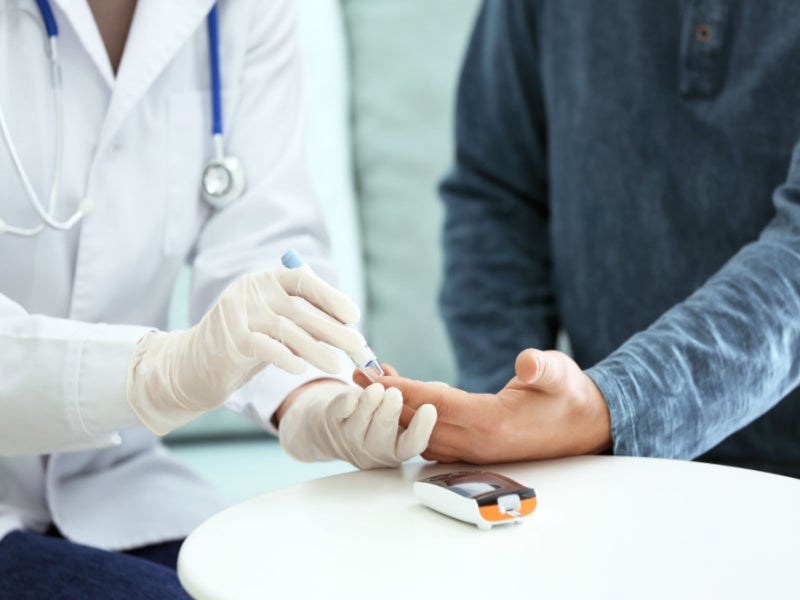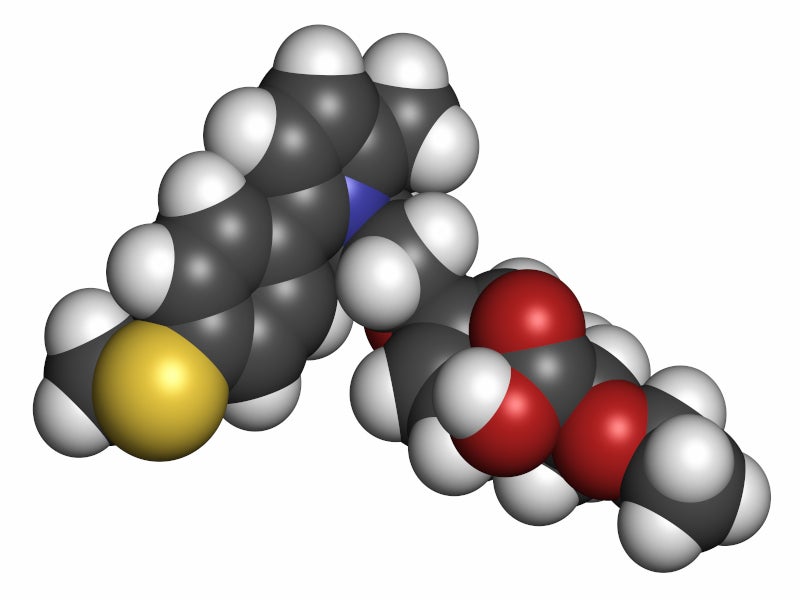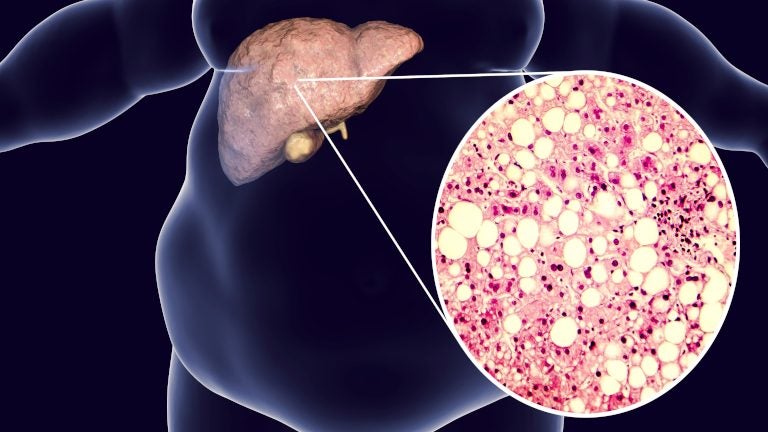Lipaglyn™ (saroglitazar) is a dual peroxisome proliferator-activated receptor (PPAR) agonist indicated for the treatment of hypertriglyceridaemia in Type 2 diabetes (T2D).
The drug was discovered and developed by Zydus Lifesciences (formerly Zydus Cadila), an India-based pharmaceutical company.
Lipaglyn is available as tablets of 4mg for oral administration.
Regulatory approvals on Lipaglyn
In 2012, Zydus submitted a new drug application (NDA) for Lipaglyn’s approval to the Drug Controller General of India (DCGI). The company received marketing approval for Lipaglyn from the DCGI for treating diabetic dyslipidaemia in T2D patients in June 2013.
In February 2020, the drug was approved by DCGI for the treatment of T2D as add-on therapy with Metformin.
Zydus received marketing approval for Lipaglyn in Mexico in November 2017 to treat dyslipidaemia in T2D patients and hypertriglyceridemia in T2D patients whose conditions could not be controlled by statins.
The company is currently evaluating the use of Lipaglyn to treat liver conditions such as non-alcoholic steatohepatitis (NASH), non-alcoholic fatty liver disease (NAFLD), and primary biliary cholangitis (PBC).
In December 2019, Zydus submitted an NDA to the DCGI seeking approval for saroglitazar magnesium (Mg) to treat NAFLD. The NDA was approved in December 2020.
In December 2020, saroglitazar Mg was given fast-track designation by the US Food and Drug Administration (FDA) to treat individuals with PBC. The drug also received orphan drug designation in January 2021.
Saroglitazar Mg received orphan drug designation for the treatment of PBC from the European Medical Agency in July 2021.
Hypertriglyceridaemia in type 2 diabetes
Hypertriglyceridaemia, also known as diabetic dyslipidaemia, is a condition whereby a person with diabetes has high blood lipid levels or triglycerides.
The elevated level of triglycerides is one of the major risk factors associated with cardiovascular diseases (CVD).
Lipaglyn was discovered and developed by Zydus Lifesciences, a pharmaceutical company based in India.
India is estimated to have approximately 77 million people with diabetes, with majority of them suffering from diabetic dyslipidaemia. An estimated 85% of people with diabetes worldwide suffer from diabetic dyslipidaemia.
Studies have shown that around 30% of deaths in the world are caused by CVD and diabetes is one of the major causes associated with CVD.
Primary biliary cholangitis (PBC) details
PBC is a liver disease caused by progressive destruction of the bile ducts in the liver. This results in decreased bile flow, a condition known as cholestasis.
Lipaglyn (saroglitazar) mechanism of action
Lipaglyn contains two main classes of PPAR agonists, which include PPARα (alpha) and PPARγ (gamma). The drug includes both lipid and glucose-lowering effects in a single molecule. It lowers high blood triglycerides and blood sugar, as well as improves insulin resistance.
In NASH models, the drug was found to act on all disease components such as steatosis, ballooning, inflammation, and fibrosis.
Clinical trials on Zydus’s Lipaglyn (saroglitazar)
The approval of Lipaglyn for the diabetic dyslipidaemia indication was based on results from clinical studies, which had been conducted for more than eight years. The studies evaluated the drug’s efficacy, safety, pharmacokinetics, and pharmacodynamics.
Phase I clinical trials on Lipaglyn were conducted in 2005 and Phase II studies were completed in 2006. The Phase III clinical trials were conducted between 2008 and 2011.
The first Phase III clinical trials on Lipaglyn compared a 4mg dose of the drug with pioglitazone, a similar drug developed by Takeda.
Results from the study demonstrated that patients who were administered 4mg of Lipaglyn showed a reduction in LDL cholesterol and triglycerides and an increase in HDL cholesterol. The study also showed that Lipaglyn-treated patients showed a reduction in fasting plasma glucose and glycosylated haemoglobin.
Lipaglyn contains two main classes of PPAR agonists, which include PPARα (alpha) and PPARγ (gamma).
The second Phase III clinical trial on Lipaglyn was conducted to evaluate diabetic dyslipidaemia patients whose condition had been insufficiently controlled with statin therapy. Results from the study showed that patients treated with Lipaglyn demonstrated a pronounced beneficial effect on both the lipid and glycaemic parameters.
Lipaglyn was well-tolerated, and its safety profile was shown to be better than those of its comparator drugs in both trials. The drug was also found to have a non-renal route of elimination and did not show adverse events such as oedema, weight gain, myopathies, or derangement of liver or kidney functions, thus making it safe and efficacious.
The Phase Ⅲ clinical trial on saroglitazar Mg for the treatment of T2D as an add-on therapy with metformin evaluated the drug’s safety and efficacy against those of pioglitazone. The trial met the primary endpoint as HbA1c levels reduced by 1.34g/dL with saroglitazar 2mg and 1.49g/dL with saroglitazar 4mg compared with 1.47g/dL with pioglitazone 30mg.
Various other clinical trials are being carried out to evaluate the safety, tolerability, and effectiveness of saroglitazar Mg in patients with NASH and PBC.
In Phase II trials involving NAFLD patients, saroglitazar Mg has improved liver enzymes and demonstrated favourable effects on lipid and glycaemic indices. The drug also yielded positive data in the Phase III biopsy-driven EVIDENCES II study, which compared 4mg Saroglitazar with placebo in participants suffering from NASH.
Saroglitazar Mg achieved the primary endpoint in the EVIDENCES IV trial conducted in patients with NAFLD and NASH in the US. It showed a 44.39% reduction in ALT (alanine aminotransferase) from baseline at 16 weeks apart from achieving reductions in liver fat content (LFC), insulin resistance, and atherogenic dyslipidaemia.
The EPICS Phase Ⅱ study to evaluate the safety, tolerability, and efficacy of saroglitazar Mg in patients with PBC showed that the drug was well-tolerated and resulted in significant improvements in alkaline phosphotase (ALP) levels.
The EPICS-III™ Phase 2(b)/3 clinical trial was initiated in December 2021 to evaluate the safety and efficacy of Saroglitazar Mg in patients with PBC. The study showed that Saroglitazar 2mg and 4mg was well-tolerated and resulted in rapid and consistent ALP improvements.
Zydus is currently conducting a Phase II study, EVIDENCES VII, to evaluate saroglitazar Mg’s ability to treat NAFLD in women with polycystic ovary syndrome (PCOS) in the US and Mexico.
The EVIDENCES-X™ is a global pivotal Phase II(b) clinical trial being conducted to evaluate the safety and efficacy of saroglitazar Mg in patients with NASH. The study’s primary endpoint is the resolution of steatohepatitis with no worsening of fibrosis.
Marketing commentary on Zydus Lifesciences
Zydus Lifesciences, part of Zydus Group, is a leading international pharmaceutical company based in Ahmadabad, India. The company discovers, develops, produces, and markets a wide range of healthcare therapies.
Zydus Lifesciences launched Lipaglyn across the Indian market in 2013. The company spent around $250m to develop the drug. It has also committed to spending between $150m and $200m to launch the drug in overseas markets.





